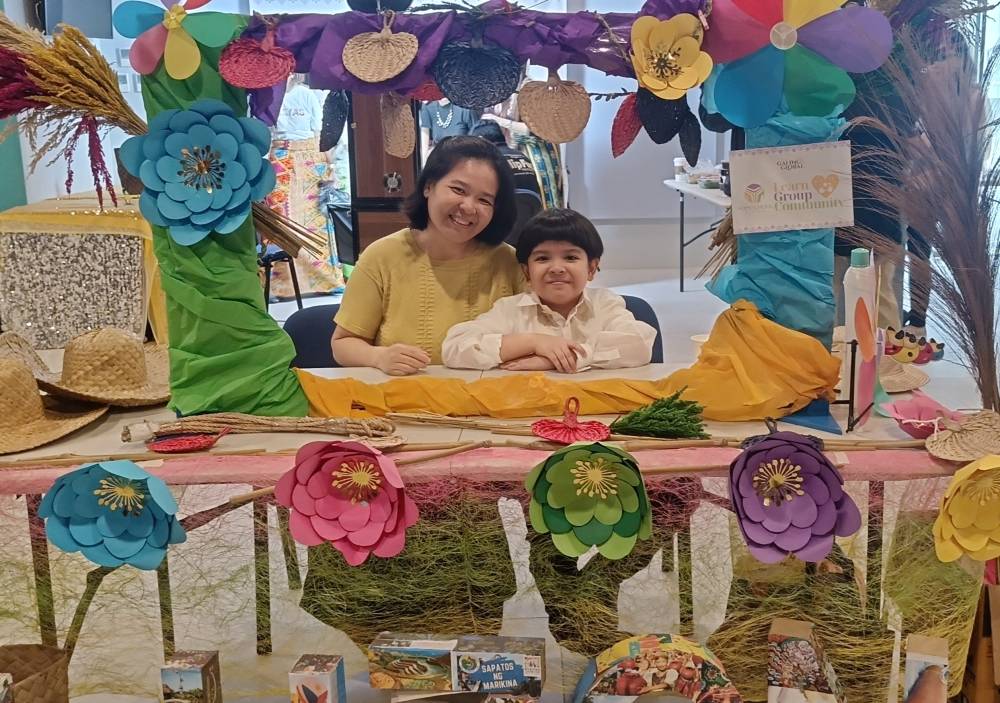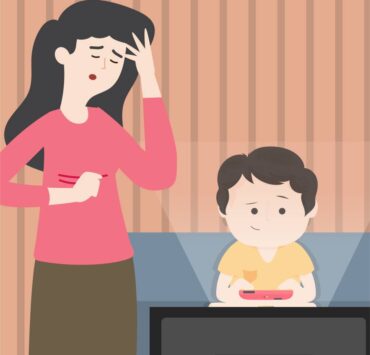Is homeschooling for you and your child?

The topic of homeschooling was inadvertently discussed at a Senate hearing last September that tackled the case of now disgraced Bamban, Tarlac mayor Alice Guo’s involvement in Philippine Offshore Gaming Operators.
Guo said she was homeschooled but couldn’t give the name of her homeschool provider, which, as pointed out by Sen. Risa Hontiveros, is an essential part of the system. Hontiveros said she was familiar with the setup since she also homeschooled her children.
Though homeschooling literally means the education of children at home by their parents, it also has an institutionalized system followed in different countries. In the Philippines, the Department of Education (DepEd) introduced in 1997 the Homeschooling Program as an Alternative Delivery Mode (ADM) for learning and strengthened it through the issuance of DepEd Order No. 001, series of 2022.
The Homeschooling Program is “designed as one of the ADMs offered by any public or private school as a response to the needs of learners who are unable to attend formal school due to medical conditions or family circumstances.”
Postpandemic, DepEd has updated the Homeschooling Program’s guidelines, standards and implementation procedures. It also highlights that “parents or guardians are responsible for monitoring their children’s work and progress and shall be the primary agents of the teacher-learning process, including its design and execution.”
On the other hand, the government agency instructed school heads to “assign a Homeschool Coordinator who will be in charge of enrolling learners, monitoring their progress and providing support to parents or guardians during the implementation.”
It stressed that “Homeschool learners should also be provided with textbooks and modules in print or digital format, as well as a conducive learning space at home and a learning plan that indicates the learning area, learning competencies and learning tasks.”
Additionally, DepEd explained that “to identify their academic level, strengths and weaknesses and knowledge learned throughout the year, all learners enrolled in the program shall take the National Career Assessment Examination (NCAE) and the National Achievement Test (NAT). Private schools are required to obtain a Permit to Offer the program while public schools should obtain the authorization of the Regional Officer.”
Correcting misconceptions
Private schools need the DepEd’s accreditation to operate as a homeschool provider. An example is Homeschool Global, whose chairman, Edric Mendoza, is also the founder and chair of Homeschool Association of the Philippine Islands.
Mendoza told Lifestyle in an online interview, “Today it seems the biggest misconception is that the ‘online school’ experience of almost all families during the pandemic is what ‘homeschooling’ is. So much of the trauma of parents and kids that may have resulted from that experience has stuck with the term ‘homeschooling.’”
He then pointed out, “But the reality is homeschooling is fundamentally different in that the parents drive the learning and the parents choose to homeschool. The online school experience during the pandemic was driven by the school and teachers and the parents didn’t really have a choice.
“Prior to the pandemic, one of the biggest misconceptions is that homeschooling is bringing the school experience into the home. This also creates problems because a parent, or the child, examines what happens in a conventional school and then tries to copy it—or parts of it that they can—at home.
“But many things are different because once again, the parents drive the learning. This means the parent can dictate what to learn, when to learn and where to learn it. They have great flexibility to personalize the learning of the child. In the Philippines, because of the strong relationship between the homeschool community and DepEd, homeschoolers generally conform to the prescribed minimum learning competencies of DepEd’s K-12 system.
“This means that though the homeschooling parent has flexibility, he or she still ensures the child is following the grade levels of DepEd, such as Kinder through Grade 12, and covering the minimum learning competencies every school year. Minimum learning competencies are the key concepts or topics each child must learn for each subject, such as Math, Science, History, etc. in a certain grade level.”
3 vital steps
Mendoza recommended taking three vital steps toward homeschooling.
Step 1 is “a reality check.” Parents who are interested must first ask this question: Can they drive the learning of the child? If yes, the next questions are: Can they put in the time to teach or find a teacher, such as a tutor, online platform or a fellow capable mom? Can they put in the time to find and create a learning experience best suited for the child (i.e. curriculum materials that comply with the DepEd minimum learning competencies, classes in music, art, sports and other interests?)
Parents can then move to Step 2, which Mendoza called community check. Who will they journey with? Who can help them on their journey? This is where homeschool providers and the like come in.
Then comes Step 3, which is Step 1 for people who are hearing about homeschooling for the first time. This is called purpose check, with the question: What is your end-goal in your parenting and learning journey?
The last step is a hard one, he said. “But once clear, it makes both the parenting and homeschooling choices and overall journey much, much smoother and definitely more fulfilling.”
He explained that choosing a homeschool provider depends primarily on the parents’ responses to Steps 1 and 2. “On top of these, key factors should include: track record, people/leaders behind the provider, families already enrolled, and of course price.”
Homeschooling mom
Katrina Valle has been singlehandedly raising her child Keon, 9, since her husband’s death in 2021. She’s also solo homeschooling her son, who is in Grade 2.
She recalled to us via email, “When Keon was around 3 years old, my husband and I started praying for a school. We visited schools in our area and looked at their summer classes. We were able to enroll him in a summer class.
“But something felt off. So we prayed more that we be led to a school that would be Keon’s forever school. Then we were led to homeschooling.
“We started homeschooling when Keon was 6… I asked the Lord countless times if this is for us. He led us to homeschooling when my husband was still with us, should we still pursue it? His answer was yes. So we pushed on.”
Valle then attended a virtual open house offered by a homeschool provider before enrolling her son. She noted that the process was “easy” and the staff “helpful,” adding, “We’re blessed because we started homeschooling in kinder with the basics. It was a humbling experience because you have to go back to your kindergarten days and give grace to yourself as the teacher and your child as your learner.”
She realized there were a lot of things to unlearn and learn, but she keeps herself motivated because, along with the flexibility of the setup, one of the benefits of homeschooling is, “I get to know more about my child and how he learns best.”
Her advice to parents who would also like to homeschool their children: “Just enjoy learning with your child. Enjoy the season. We can only do so much and it is really God’s grace that enables us to keep going.”
She added, “It’s easier to have a list of possible providers—ask them what they have and how they can help you. The provider will help you in your homeschool journey and how you can transition from homeschooling to a conventional school when the time comes.”

















